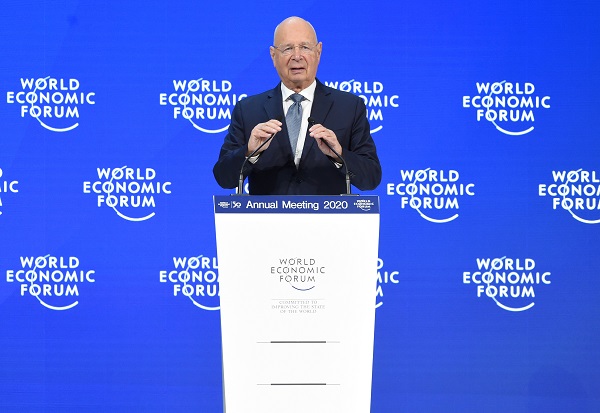Geneva, (Asian independent) The World Economic Forum (WEF) has announced that its 2022 Annual Meeting will focus on the unprecedented global challenges governments are currently facing, including post-pandemic recovery, the Ukraine crisis and climate change.
The meeting, called “History at a Turning Point: Government Policies and Business Strategies,” will be held in Davos, Switzerland, on May 22-26, Xinhua news agency reported.
After a two-year gap due to the Covid-19 pandemic, followed by the Ukraine crisis and other geo-economic challenges, the meeting is taking place at a crucial point in time, the WEF said on Wednesday.
It will bring together nearly 2,500 leaders and experts from around the globe, in a bid to “reconnect, exchange insights, gain fresh perspectives and advance solutions”.
“The Annual Meeting is the first summit to bring global leaders together in this new situation characterised by an emerging multipolar world as a result of the pandemic and war,” said Klaus Schwab, the WEF’s founder and Executive Chairman.
“The fact that nearly 2,500 leaders from politics, business civil society and media are coming together in person demonstrates the need for a trusted, informal and action-oriented global platform to confront the issues in a crisis-driven world.”
More than 50 Heads of state and government are expected to join, the WEF added.
Over 1,250 leaders from the private sector will also participate along with up to 100 “Global Innovators” and “Technology Pioneers”.
The agenda will focus on six themes, the WEF said, including: fostering global and regional cooperation; securing economic recovery and shaping a new era of growth; building healthy and equitable societies; safeguarding climate, food and nature; driving industry transformation; and harnessing the power of the Fourth Industrial Revolution.
Global business and government leaders need to work together to develop long-term policies and strategies to revitalise the hard-hit global economy, boost the progress of the Fourth Industrial Revolution, and tackle the single greatest threat to humanity, climate change.
It comes after the International Monetary Fund warned in its World Economic Outlook in April that global growth is projected to slow from an estimated 6.1 per cent in 2021 to 3.6 per cent in 2022 and 2023. This is 0.8 and 0.2 percentage points lower for 2022 and 2023 than the global lender had projected in January.
The 2022 Annual Meeting was originally scheduled for January 17-21, but was deferred due to the challenges of staging an in-person global conference during the Omicron outbreak.








